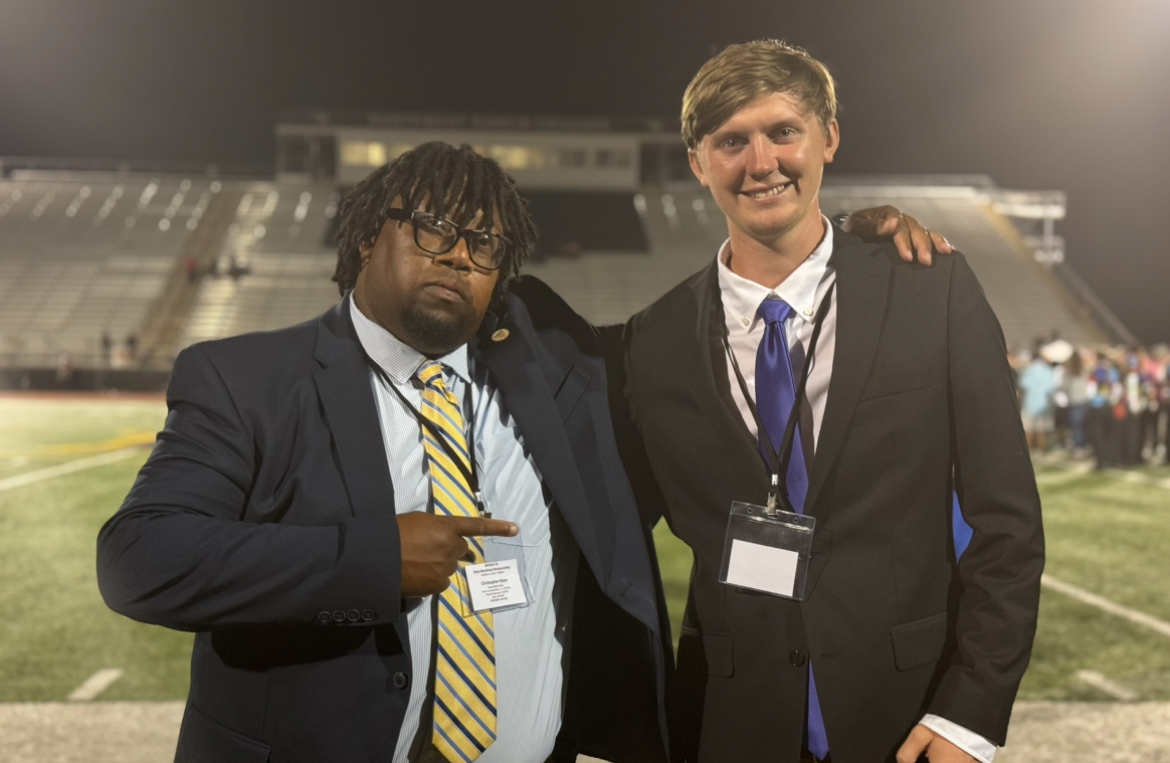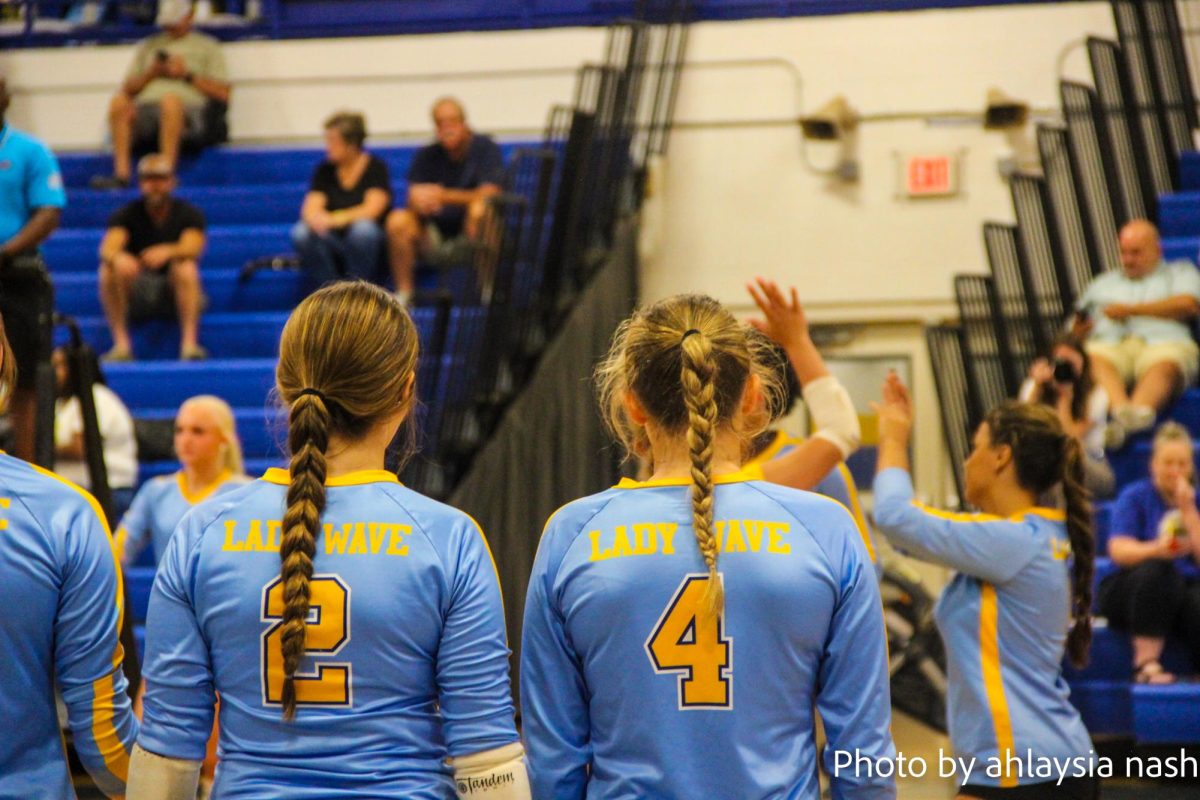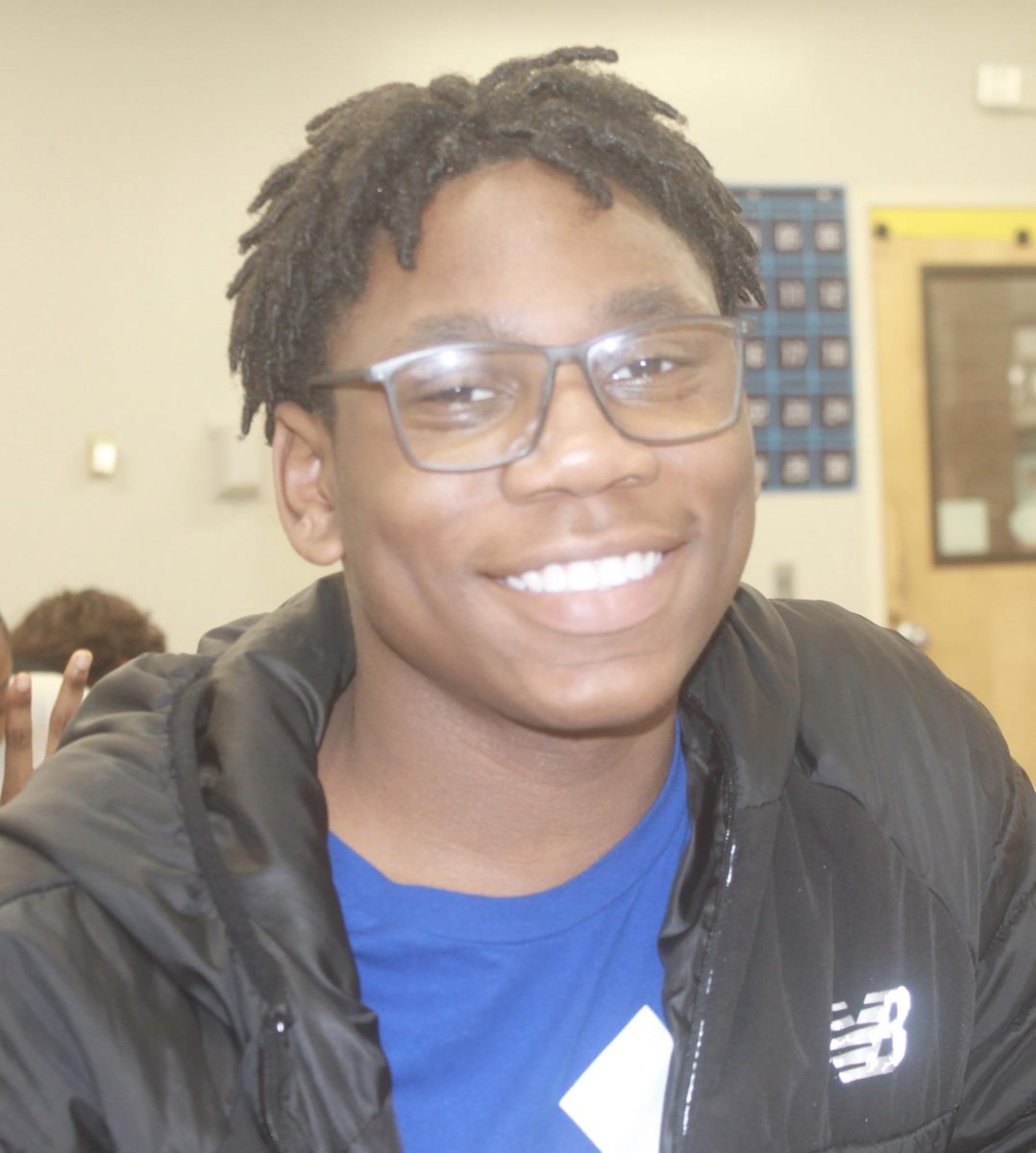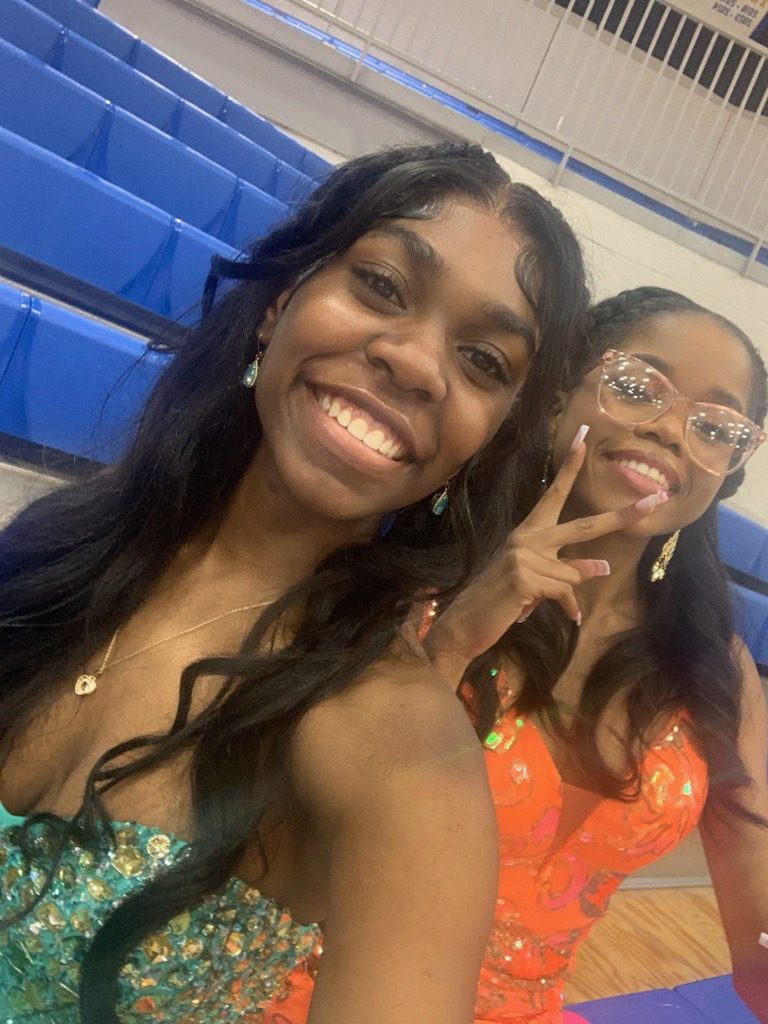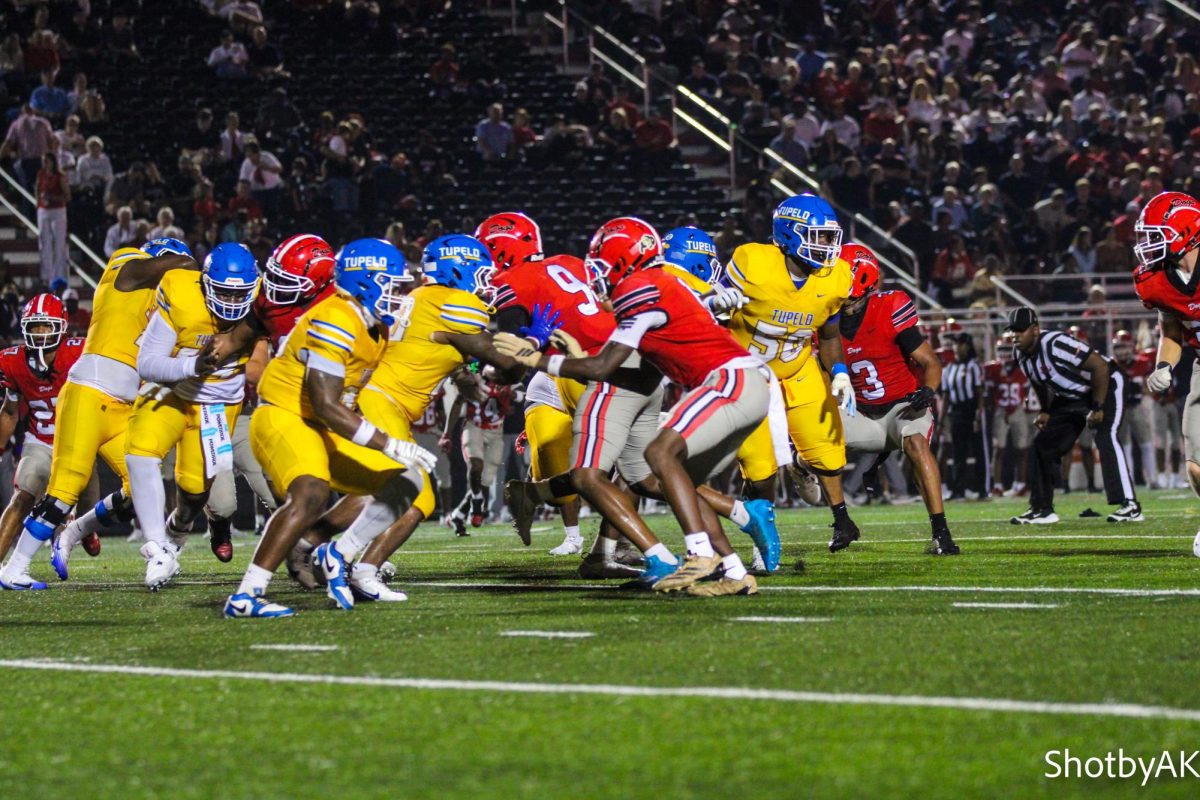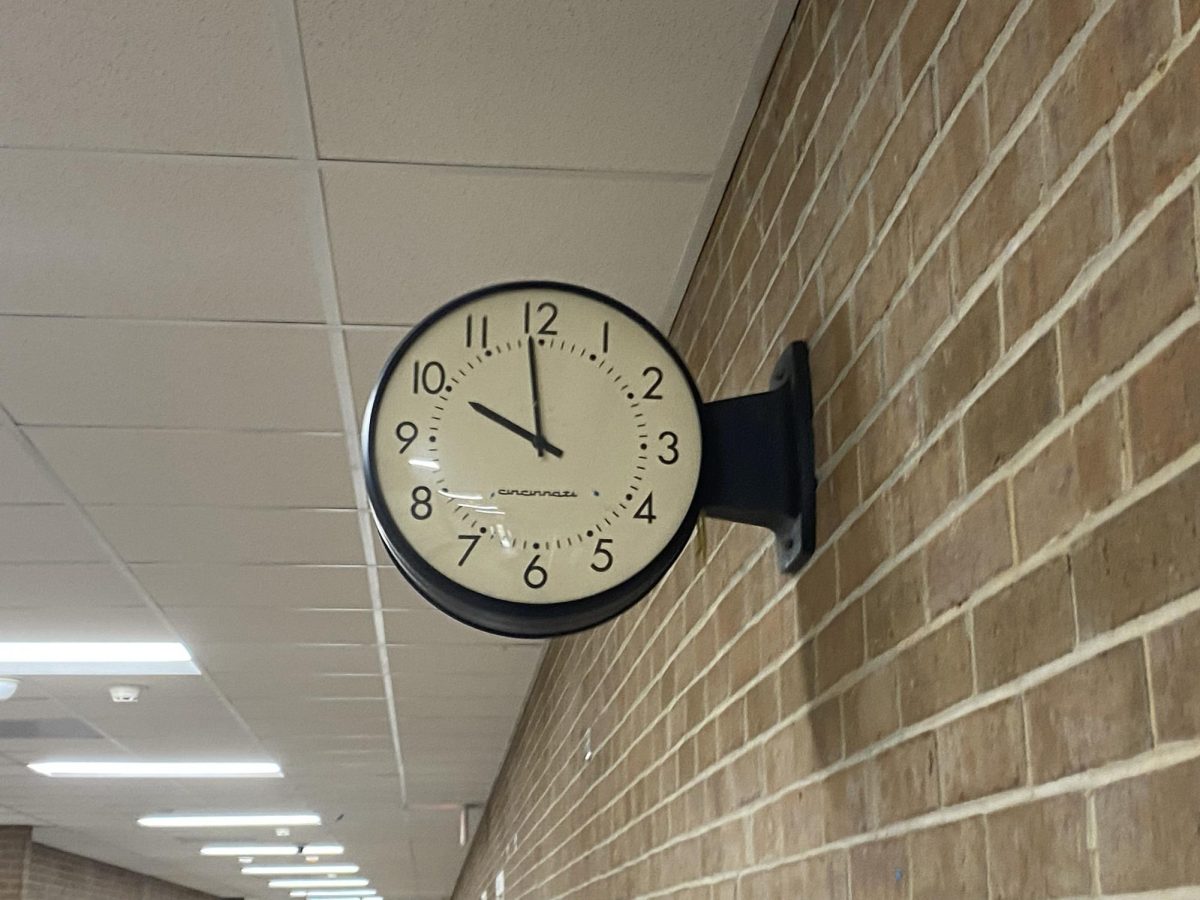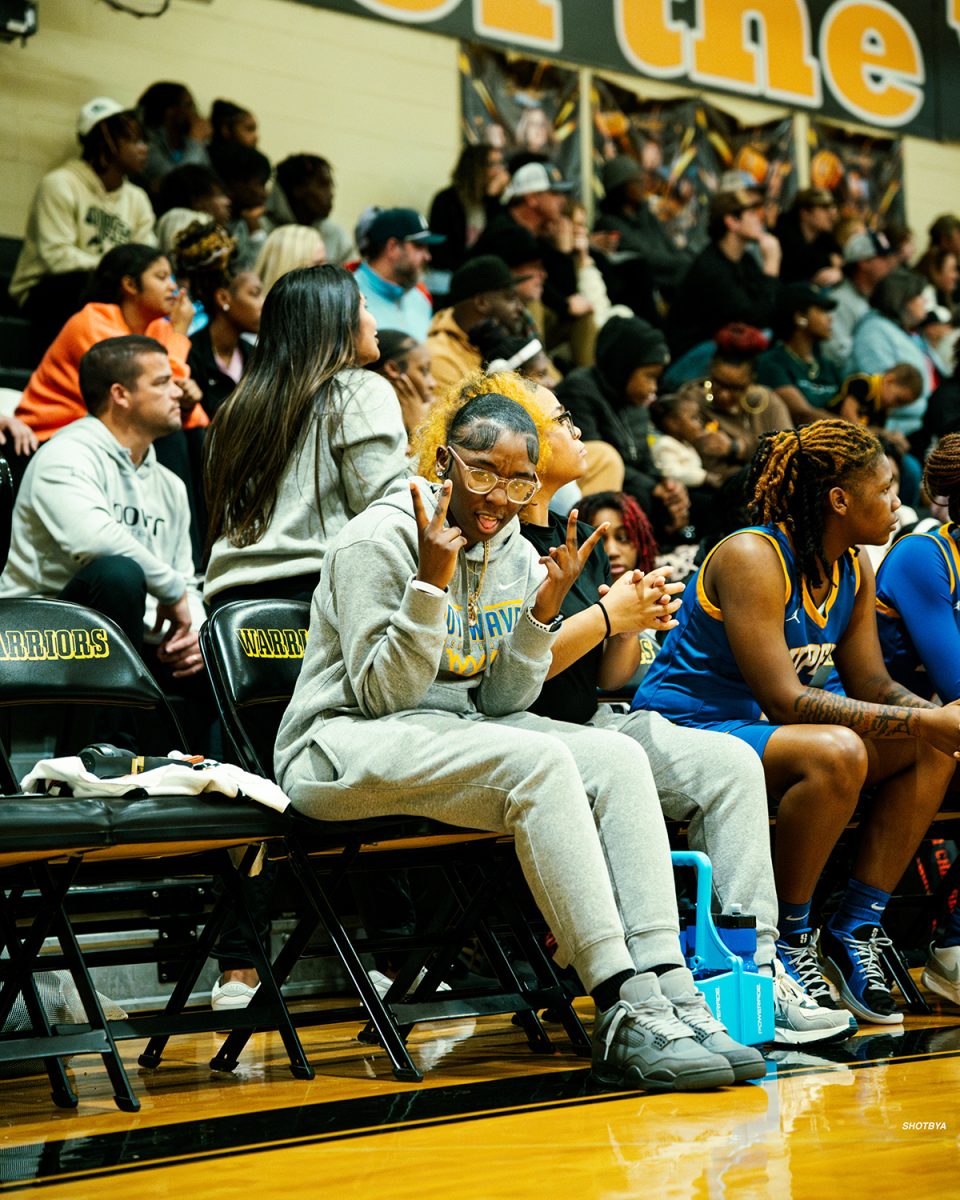Christopher Whitehead is a new teacher at Milam and is also a percussion director at Tupelo High School.
JD: How many years have you been teaching?
CW: This is my first official year teaching.
JD: Did you always have a passion for teaching?
CW: Not really, I wanted to be a performer. I realized I was not up to par but enjoyed teaching. It shifted once I realized just because I could not use the information to my own advantage does not mean I could not help others benefit with the knowledge I gained.
JD: Do you have any best moments of teaching?
CW: I haven’t been teaching long, but the feeling of watching all of the students you helped to learn perform really makes you happy. When y’all turned around at the ICC Competition and hit the note after the flyover, it was probably my current favorite moment. With music you can feel the passion behind the playing if the kids are into it and that was an amazing performance.
JD: Why did you choose to do music?
CW: I have always enjoyed music, playing and listening. I love to play a variety of instruments. I don’t like to seclude myself to saying ‘I am a percussionist’ because music as a whole cannot just be one thing. Music can be anything, and that is what I believe is so great. I love hearing a band that has a balance of everything. The percussion knows when to shine and when they should just groove. The brass knows when to back off and let the wood winds play out. ETC. Music is just a fascinating thing that is prevalent in all cultures, no matter what. Music connects everyone on a deeper level, which is also why I believe that if everyone tries to support each other in every aspect of music the ensemble will always be strong.
JD: What would you say to anyone who is looking forward to pursuing higher level music education?
CW: Find professionals of your instrument, practice scales/rudiments every day. You always worry about playing the music and how to do it. If you do not have a solid foundation, it does not matter how many DCI transcription videos you practice, you will progress much slower than the person that can break down the video into multiple rudiments upon each other that you already can play and mash together. Also do not stick to strictly marching percussion , you should become a well-rounded player. In high school marching percussion is everything. In the real world, unless you are a high school teacher, marching percussion jobs are like a seasonal gig. More often than not your skills will be in orchestral settings and gigs for other percussion needs. Also learn from multiple people. There is no set way to play drums, piston stroke, Mueller strokes, blah blah there’s a lot that goes into it. It’s all about what works best for you as a player.
JD: How would you describe your relationship with your colleagues?
CW: We get along very well. I just try and learn from them as best I can. I don’t interject my own opinion unless I feel it is beneficial, as most of the time I am trying to learn as much as I can. They all try to support and give me the information to help me improve with my own teaching. They also reinforce the things I do correctly so that I know for sure that what I am doing is good for our program.
JD: How would you describe your experience in Tupelo so far?
CW: Slightly stressful. Changing from a college experience to the real world is kind of a hit. You have less free time, and you feel tired and old a lot. But that does not mean it is bad. Tupelo has so many kids within its program that I get to see many kids who need help in some kind of way. Knowing that I have done something productive and that I have helped at least one student throughout my day makes up for it in the end. Like I said before seeing a finished product and knowing you did well makes it feel like your hard work paid off.
JD: Are you excited for the following spring Riptide Indoor Percussion?
CW: I am, but a little stressed from the time consumption. It is hard to balance your job, plus family, plus friends when you spend the majority of time at the job. It will be fun to hear the music once it is a polished product, but I won’t lie and say I wouldn’t enjoy having a free Saturday every once in a while. Do what you got to do to be good though, and if that is what it takes to perform at a high level then you just got to dig your heels in and grind it out.
JD: Is there anything else you would like to add?
CW: If music is something you are striving to be good at, make sure that it is in every aspect. I often hear ‘I only care about the indoor group and showing how good we are in Riptide.’ I believe that this mentality hurts both the ensemble, and you as a player. As a player you should want to show that it does not matter what group you are a part of, that you are the best on the field, in the gym, in the stands. This means discipline in all aspects. Everyone shows up on time, everyone looks the same, no half uniforms, no hoodies sticking out of uniforms, things as simple as ‘do we pick up our sticks the same.’ Discipline in simple things like appearance builds a team, a team will build a foundation to support the weaker links. Not tear them down. If a person is not performing to standards, having a chop out party to help them understand concepts is a great way to help build confidence as a person, and as a team. Too many times we try to show off our own skills rather than use the skills we already have tomake our own team better.
Basically, just try and be the best you can be in everything and try to help others progress to be the best they can be. Positivity helps everyone.



